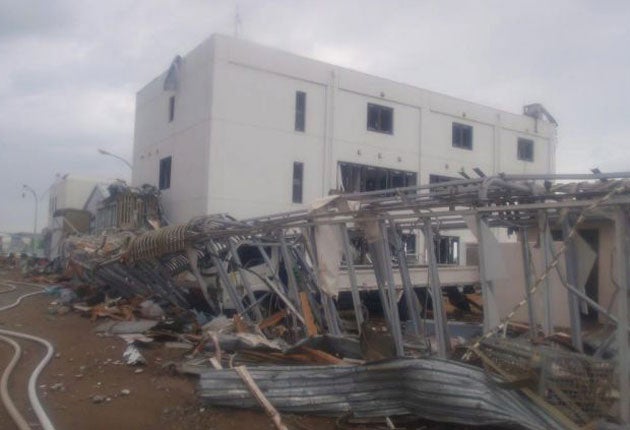Your support helps us to tell the story
From reproductive rights to climate change to Big Tech, The Independent is on the ground when the story is developing. Whether it's investigating the financials of Elon Musk's pro-Trump PAC or producing our latest documentary, 'The A Word', which shines a light on the American women fighting for reproductive rights, we know how important it is to parse out the facts from the messaging.
At such a critical moment in US history, we need reporters on the ground. Your donation allows us to keep sending journalists to speak to both sides of the story.
The Independent is trusted by Americans across the entire political spectrum. And unlike many other quality news outlets, we choose not to lock Americans out of our reporting and analysis with paywalls. We believe quality journalism should be available to everyone, paid for by those who can afford it.
Your support makes all the difference.Japan began imposing energy restrictions on companies, shopping centres and other major electricity users today to cope with power shortages caused by the loss of a tsunami-hit nuclear power plant.
Big factories, office buildings, universities and department stores in the Tokyo area must use 15 per cent less electricity than a year ago. Electricity is in short supply due to the shutdown of the Fukushima Dai-ichi plant hit by the massive March 11 earthquake and tsunami.
The restrictions on power use from 9am to 8pm on weekdays last until 22 September, and violators face fines of up to 1 million yen. The limit does not apply to households, but the government has urged them to conserve energy.
"We ask their cooperation so that we can all overcome the energy crunch," trade ministry official Satoshi Koyanagi said. The government has already implemented energy-saving measures such as disabling extra elevators and turning off lights.
Tokyo Electric Power Co. expects to supply 56.8 million kilowatts for Tokyo and its vicinity in July, short of an estimated demand of 60 million kilowatts. The company said it's estimated supply would be slightly less in August.
To cope with the shortage, Sony Corporation said it would turn off air conditioning at its Tokyo headquarters after 6pm. It also is starting the business day an hour earlier at 8.30am, spokesman Atsuo Omagari said.
The Tokyo Stock Exchange turned off its electronic price ticker and will not receive visitors until the end of September.
"We are turning off all lights and air conditioning in the visitors' areas," said Yukari Hozumi, a stock exchange spokeswoman.
Major department store Mitsukoshi said it has turned off unnecessary lights and disabled some elevators and escalators.
Tokyo's city-operated subway stations are turning off air conditioning at platforms between noon and 3pm.
East Japan Railway has been operating fewer train services from noon to 3pm in the Tokyo area since 24 June.
Conservation efforts during Japan's hot summer has triggered some concerns about heat-related illnesses.
The temperature in Tokyo rose to 93 Fahrenheit (33.9 Celsius) today and could reach 100 Fahrenheit during the next three months.
"Be careful about heat strokes," warned the Meteorological Agency, which has set up a special site for the problem on its website.
The government also has launched a campaign urging office workers to shed their suits and ties for lighter clothes such as polo shirts to endure the country's summer heat.

Join our commenting forum
Join thought-provoking conversations, follow other Independent readers and see their replies
Comments